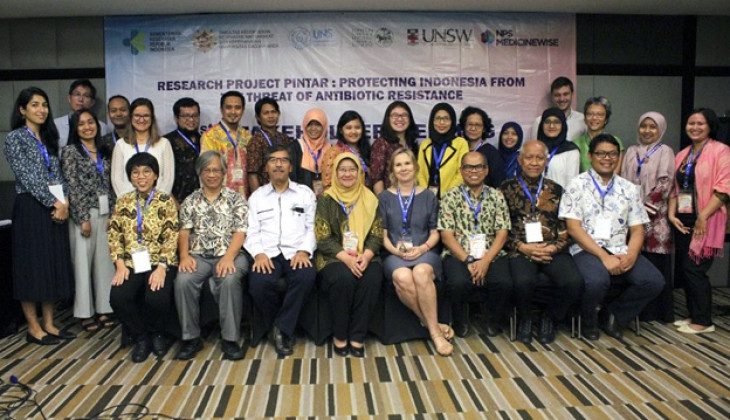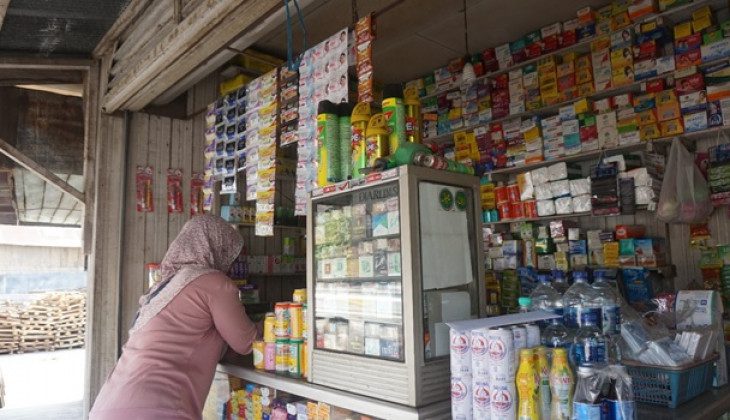
Antimicrobial resistance (AMR) is a public health problem. Many cases of antibiotic resistance occur due to inappropriate, excessive, or irrational administration of antibiotics.
Recent research conducted by researchers from Universitas Gadjah Mada, Universitas Sebelas Maret, the Indonesian Ministry of Health, the Kirby Institute at UNSW Sydney, London School of Hygiene & Tropical Medicine, University College London, and The George Institute for Global Health at UNSW Sydney showed that dispensing antibiotics without prescriptions was a common practice. From two-thirds of visits to pharmacies and private drug stores, antibiotics were given without a doctor’s supervision.
Professor Tri Wibawa from UGM FKKMK said the research findings indicate the need for serious attention to selling antibiotics practices in pharmacies and private drug stores. Antibiotics misuse is one of the factors for bacterial resistance to antibiotics.
“It is important to control the circulation of antibiotics in the community to avoid the threat of bacterial resistance to antibiotics,” he said.
Professor Virginia Wiseman from the Kirby Institute, the leader of this research, explained that her team conducted research using mystery clients to visit pharmacies and private drug stores in Bekasi City, West Java, and Tabalong Regency in South Kalimantan. This research is in partnership with the Antibiotic Resistance Control Committee (KPRA) under the Indonesian Ministry of Health. During the visit, the mystery clients will demonstrate the symptoms of the disease and record what happens in the interaction.
Overall, the team made 495 visits to private pharmacies and drug stores. From 70% of these visits, the practice of giving antibiotics without a prescription happened, although they know that administering antibiotics without a prescription is prohibited because they are considered hard drugs.
“In fact, in more than two-thirds of visits to pharmacies and private drug stores in Indonesia, one type of antibiotic is obtained without a prescription and often without adequate advice from health workers. This is very concerning. There are even some second-line antibiotics that should only be prescribed in special circumstances,” he explained.
Profit Pressure, Regulation, and Cultural Change
This study has been published by BMJ Global Health. Luh Putu Lila Wulandari, the research fellow at the Kirby Institute and lead author of the paper, said that the qualitative component of the study helps explain why pharmacies and private drugstores sell antibiotics without a prescription. One of the reasons that arise is the pressure from customers.
“Many feel pressured by customers,” she said.
According to Luh Putu, this condition shows the complexity of the practice of giving antibiotics without a prescription. Although there is a profit motivation, over-the-counter drug administration is considered the norm. Thus, it is necessary to change regulations and culture around the administration of antibiotics in the future.
This research was part of Protecting Indonesia from the Threat of Antibiotic Resistance (PINTAR) supported by a grant from the Indo-Pacific Center for Health Security (DFAT) under the Australian Government’s Health Security Initiative. In this study, the PINTAR team worked with the Government of Indonesia to develop a strategy for increasing antibiotic use in the private sector.
Prof. Probandari from Universitas Sebelas Maret, one of PINTAR’s principal investigators, said that there is a fair amount of pressure on the health system in Indonesia. The situation has become more complicated due to the Covid-19 pandemic. Therefore, the administration of antibiotics that have not been regulated properly needs to be addressed immediately.
“In many ways, Covid-19 has exacerbated the problem of over-the-counter antibiotics. More and more people are sick or afraid of getting sick, and are trying to seek medical advice and drugs like antibiotics everywhere,” she explained.
According to her, an approach from various aspects is necessary to deal with antibiotic dispensing practice without prescription. There are many considerations, ranging from the need to maximize profits by private pharmacies and drugstores, the high demand for antibiotics from customers, and the motivation from owners to compete with other stores.
“The good news is that the Indonesian Ministry of Health is making this a priority and allocating resources to find a solution,” she said.



